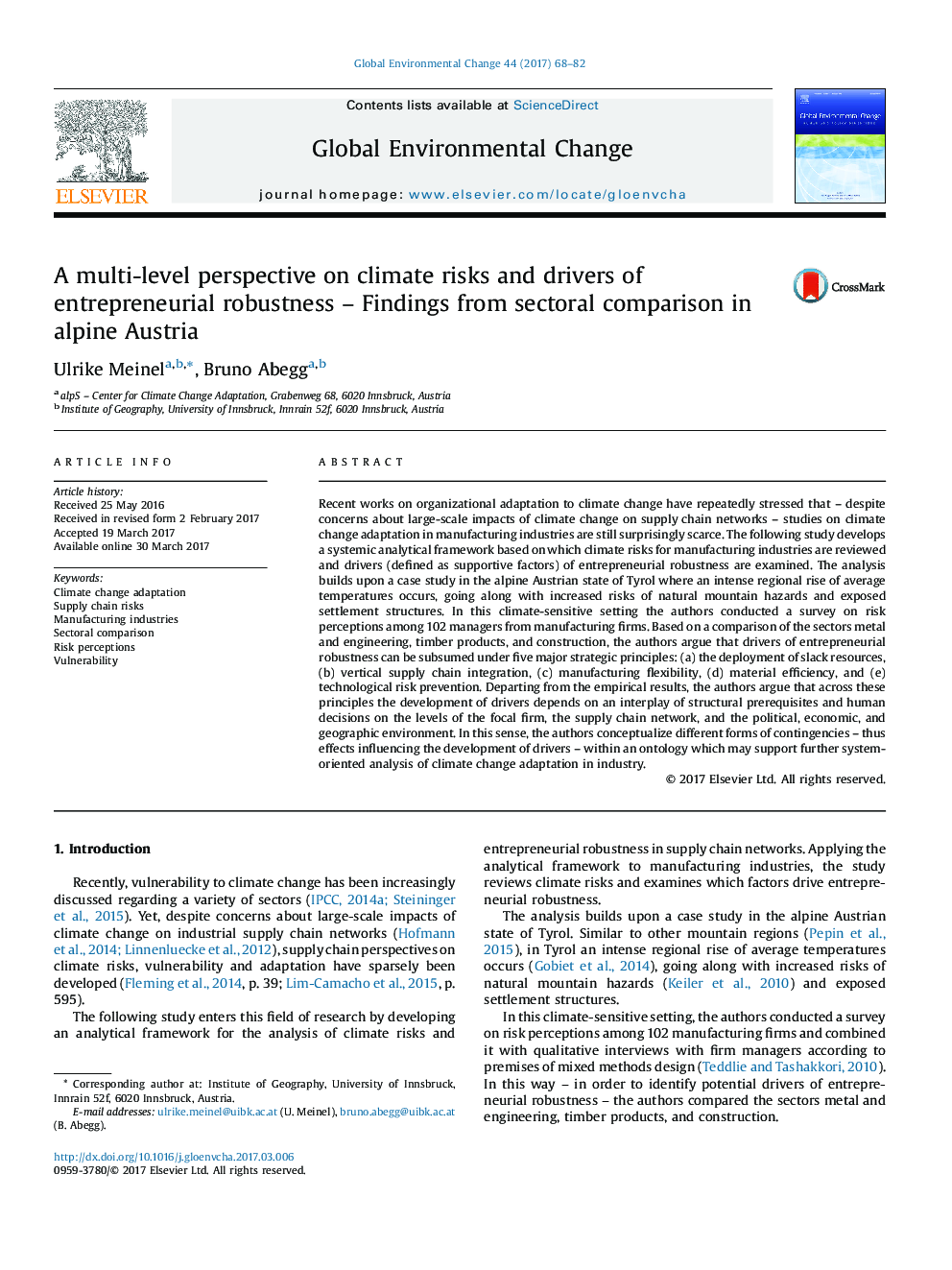| Article ID | Journal | Published Year | Pages | File Type |
|---|---|---|---|---|
| 5115926 | Global Environmental Change | 2017 | 15 Pages |
â¢We present the results of a firm survey on perceptions of climate risks.â¢Climate risks in supply chain networks and drivers of robustness are examined.â¢Five strategic principles of entrepreneurial robustness are identified.â¢The contingent nature of drivers is conceptualized from a multi-level perspective.
Recent works on organizational adaptation to climate change have repeatedly stressed that - despite concerns about large-scale impacts of climate change on supply chain networks - studies on climate change adaptation in manufacturing industries are still surprisingly scarce. The following study develops a systemic analytical framework based on which climate risks for manufacturing industries are reviewed and drivers (defined as supportive factors) of entrepreneurial robustness are examined. The analysis builds upon a case study in the alpine Austrian state of Tyrol where an intense regional rise of average temperatures occurs, going along with increased risks of natural mountain hazards and exposed settlement structures. In this climate-sensitive setting the authors conducted a survey on risk perceptions among 102 managers from manufacturing firms. Based on a comparison of the sectors metal and engineering, timber products, and construction, the authors argue that drivers of entrepreneurial robustness can be subsumed under five major strategic principles: (a) the deployment of slack resources, (b) vertical supply chain integration, (c) manufacturing flexibility, (d) material efficiency, and (e) technological risk prevention. Departing from the empirical results, the authors argue that across these principles the development of drivers depends on an interplay of structural prerequisites and human decisions on the levels of the focal firm, the supply chain network, and the political, economic, and geographic environment. In this sense, the authors conceptualize different forms of contingencies - thus effects influencing the development of drivers - within an ontology which may support further system-oriented analysis of climate change adaptation in industry.
